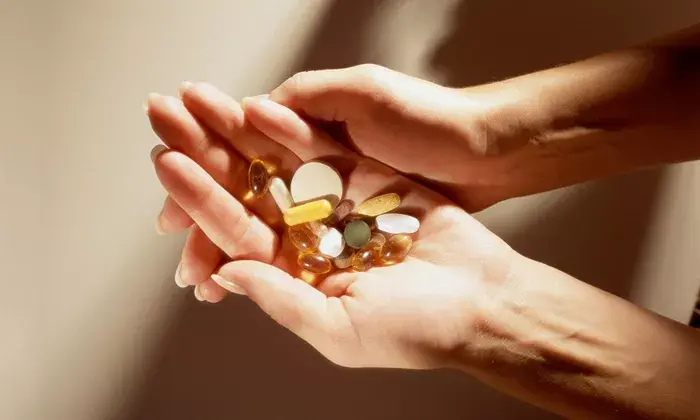Hot flashes are sudden feelings of warmth, often intense, that many women experience during menopause. These episodes can cause discomfort, sweating, and sometimes disrupt daily life. Many women look for natural ways to reduce hot flashes without using hormone therapy, which may not be suitable for everyone. Vitamin E, a well-known antioxidant, has been studied for its potential to ease hot flashes and other menopausal symptoms. This article explores how vitamin E might help prevent or reduce hot flashes, based on scientific research and practical insights.
What Are Hot Flashes?
Hot flashes happen when the body’s temperature regulation is disturbed, usually due to hormonal changes during menopause. They can last from a few seconds to several minutes and often cause sweating, flushing, and a rapid heartbeat. About 75% of menopausal women experience hot flashes, making it one of the most common symptoms of menopause.
Why Consider Vitamin E?
Vitamin E is a fat-soluble vitamin that acts as a powerful antioxidant. It helps protect cells from damage caused by free radicals, which are unstable molecules that can harm the body. During menopause, oxidative stress may increase, contributing to symptoms like hot flashes. Vitamin E also has mild estrogen-like effects, which might help balance hormone changes without the risks linked to hormone replacement therapy.
Scientific Evidence on Vitamin E and Hot Flashes
Several studies have examined whether vitamin E can reduce the frequency or severity of hot flashes:
- A double-blind, placebo-controlled trial with 51 postmenopausal women showed that 400 IU of vitamin E daily significantly reduced both the severity and frequency of hot flashes compared to placebo[8][9].
- Another study combining vitamin E with omega-3 supplements found a noticeable reduction in hot flash severity over several weeks[3].
- Research involving breast cancer survivors, who often avoid hormone therapy, found that vitamin E led to a small but statistically significant decrease in hot flashes, though the clinical impact was modest[5][7].
- A review of multiple studies concluded that vitamin E might help with vasomotor symptoms like hot flashes and could be an alternative for women who cannot use estrogen therapy[6].
How Does Vitamin E Work to Reduce Hot Flashes?
Vitamin E’s antioxidant properties help reduce inflammation and oxidative stress in the body. It may also improve blood vessel function, which can stabilize the body’s temperature control system. Additionally, vitamin E’s mild estrogenic activity may gently ease hormonal imbalances that trigger hot flashes. These combined effects can make hot flashes less frequent and less intense.
Recommended Dosage and Sources of Vitamin E
For menopausal symptom relief, studies often used doses around 400 IU daily. However, it is best to consult a healthcare provider before starting supplements, especially if you have health conditions or take other medications.
Vitamin E is found naturally in foods such as:
- Almonds
- Sunflower seeds
- Spinach
- Broccoli
- Avocado
- Wheat germ
Including these foods in your diet can help maintain healthy vitamin E levels.
Safety and Considerations
Vitamin E is generally safe when taken at recommended doses. High doses may increase the risk of bleeding, especially if you take blood-thinning medications. Women with breast cancer or other hormone-sensitive conditions should discuss vitamin E use with their doctor, as some guidelines do not recommend it for menopausal symptom treatment in these cases[6].
Vitamin E Compared to Other Treatments
| Treatment | Effectiveness on Hot Flashes | Safety | Notes |
|---|---|---|---|
| Estrogen Therapy | Most effective | May have risks (e.g., cancer, blood clots) | Not suitable for all women |
| Vitamin E | Moderate effect, reduces frequency and severity | Generally safe at recommended doses | Good alternative for those avoiding hormones |
| Omega-3 Supplements | May enhance effect when combined with vitamin E | Safe for most people | Often used as complementary therapy |
| Placebo | Minimal effect | Safe | Used as control in studies |
Practical Tips for Managing Hot Flashes Naturally
- Maintain a balanced diet rich in antioxidants like vitamin E.
- Stay hydrated and avoid triggers such as spicy foods, caffeine, and alcohol.
- Wear light, breathable clothing to help manage sudden warmth.
- Practice stress-reducing techniques like yoga or meditation, as stress can worsen hot flashes.
- Consider supplements like vitamin E after consulting with your healthcare provider.
Conclusion: Is Vitamin E a Good Choice for Hot Flashes?
Vitamin E shows promise as a natural option to help reduce hot flashes in menopausal women. While it may not be as powerful as hormone therapy, it offers a safer alternative for those who cannot or prefer not to use hormones. Scientific studies support its ability to decrease the frequency and severity of hot flashes, especially when taken consistently at appropriate doses. Including vitamin E-rich foods in your diet and discussing supplementation with your doctor can be practical steps toward managing menopausal symptoms more comfortably.
By understanding how vitamin E works and considering it as part of a holistic approach, many women find relief from hot flashes and improve their quality of life during menopause.
Related topics:
- Does Vitamin E Help With Menopause Symptoms?
- How Much Vitamin E For Hot Flashes?
- 8 Best Vitamins For Menopause Mood Swings


